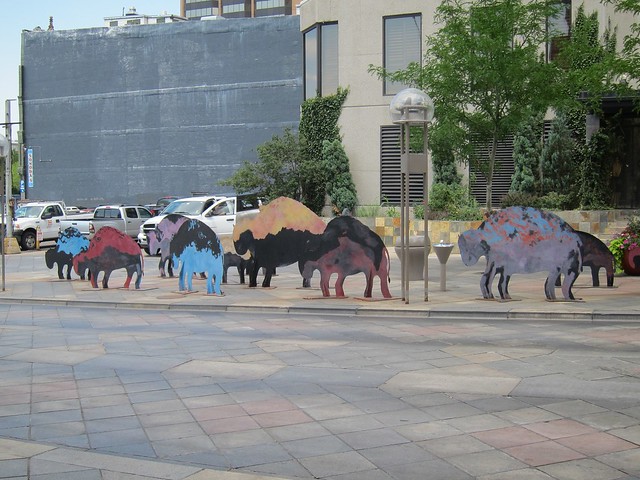Denver, Fall 2011
Snow had begun to fall in the late twilight of Civic Center
Park in Denver. Cars drove down the
street leaving ripples in their wake. A
few vehicles would pull up and stop, and volunteers would take in blankets,
sleeping bags, tents, or rain jackets.
Across the street the police had several vehicles parked streaming clouds of exhaust as officers
quietly watched behind tinted windows, waiting for the right moment to dislodge
the protest and ad hoc community from the park.
By this time the protest movement of Occupy Wall Street was
winding down, and those who remained were either the ultra-vigilant or those
simply who had no other place to go. I
spoke with several members of the temporary community, listening to reflections of this being the first time the homeless felt like they had a voice.
One young woman likely in her teenage years was wearing a
tank top, shivering in the cold. I tried
to approach her but she recoiled. It
became apparent she was especially fearful of men when others tried to reach
out, though the women from the camp had little success either. Within a few minutes someone from the
community walked over to a nearby ambulance which arrived with an officer in
tow. She tensely murmured she didn’t
need help as she was led into the ambulance and taken to the hospital for
evaluation. Those were the only words
anyone heard from her that night.
Within days the police moved in and cleared the camp, many
of the supplies donated thrown away. A new
camping ban made it more difficult to be homeless in Denver, those of whom had
limited options of where to go next. A decommissioned
prison in rural Colorado became one refuge the city sent those in need to. A spattering of other resources, championed
heavily by officials, would ebb and flow over the years since. Many I’ve spoken to who are in those circumstances
have criticized those resources as too little, too late. The rapid growth and gentrification of Denver
made it easy to continue to push the homeless deeper and deeper
underground. Unsurprisingly with increasing hardships, we’re now seeing
a surge in heavy drug use like heroin in the region.
When I first arrived in Denver that fall of 2011, I remember
seeing dozens of homeless on the street of 16th Street Mall. One art installation on the mall sidewalk has
a herd of upright metallic cutouts in the shape of bison milling about. This installation was a lucrative spot to
sleep because of the protection from wind they afforded, not to mention it didn’t
impact any business owner’s doorway.
After the ban it has remained empty, though every time I pass I still
see the silent grey ovals of a dozen filled sleeping bags there.
 |
| Stephen Rees, Flickr |
Five years later, the visible homeless are more desperate
and aggressive. The invisible struggle
to find their way. The swiftly evolving
downtown is more corporate, touristic, and unforgiving in its lack of definition
and humanity. Occupy Wall Street gave an
excuse for the comfortable to put down the blinders and reflect on the casualties of our
socioeconomic system, awareness of which seemed to fade with the snows of winter.
Now the #BlackLivesMatter movement offers a new reflection of similar
systems, one I still am working to find my words to as a privileged white male,
but will share them soon because words are necessary in these times where
silence is compliance.
For now I’ll leave with a quote from Robert F. Kennedy, which reflects much of what stirs my mind this afternoon:
...For there is another kind of violence, slower but just as deadly, destructive as the shot or the bomb in the night. This is the violence of institutions; indifference and inaction and slow decay. This is the violence that afflicts the poor, that poisons relations between men because their skin has different colors. This is a slow destruction of a child by hunger, and schools without books and homes without heat in the winter.
This is the breaking of a man's spirit by denying him the chance to stand as a father and as a man among other men. And this too afflicts us all. I have not come here to propose a set of specific remedies nor is there a single set. For a broad and adequate outline we know what must be done. When you teach a man to hate and fear his brother, when you teach that he is a lesser man because of his color or his beliefs or the policies he pursues, when you teach that those who differ from you threaten your freedom or your job or your family, then you also learn to confront others not as fellow citizens but as enemies - to be met not with cooperation but with conquest, to be subjugated and mastered.
We learn, at the last, to look at our brothers as aliens, men with whom we share a city, but not a community, men bound to us in common dwelling, but not in common effort. We learn to share only a common fear - only a common desire to retreat from each other - only a common impulse to meet disagreement with force. For all this there are no final answers... -Robert F. Kennedy, 1968
No comments:
Post a Comment